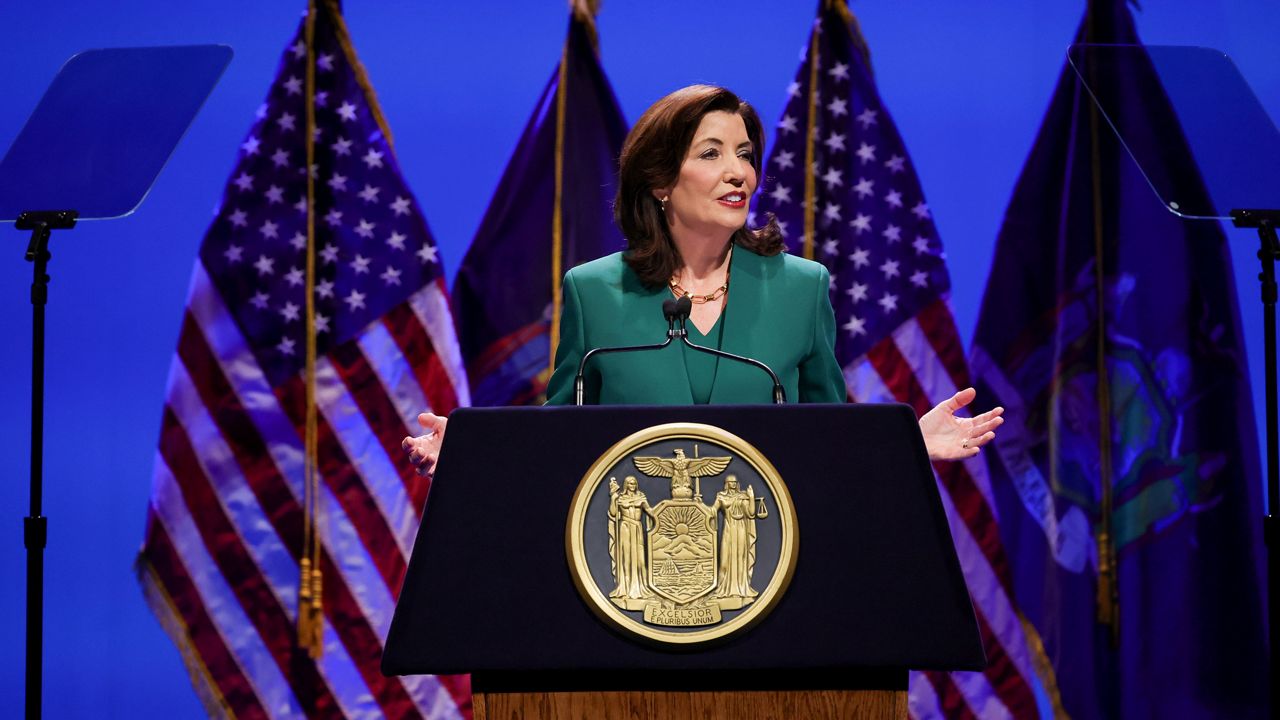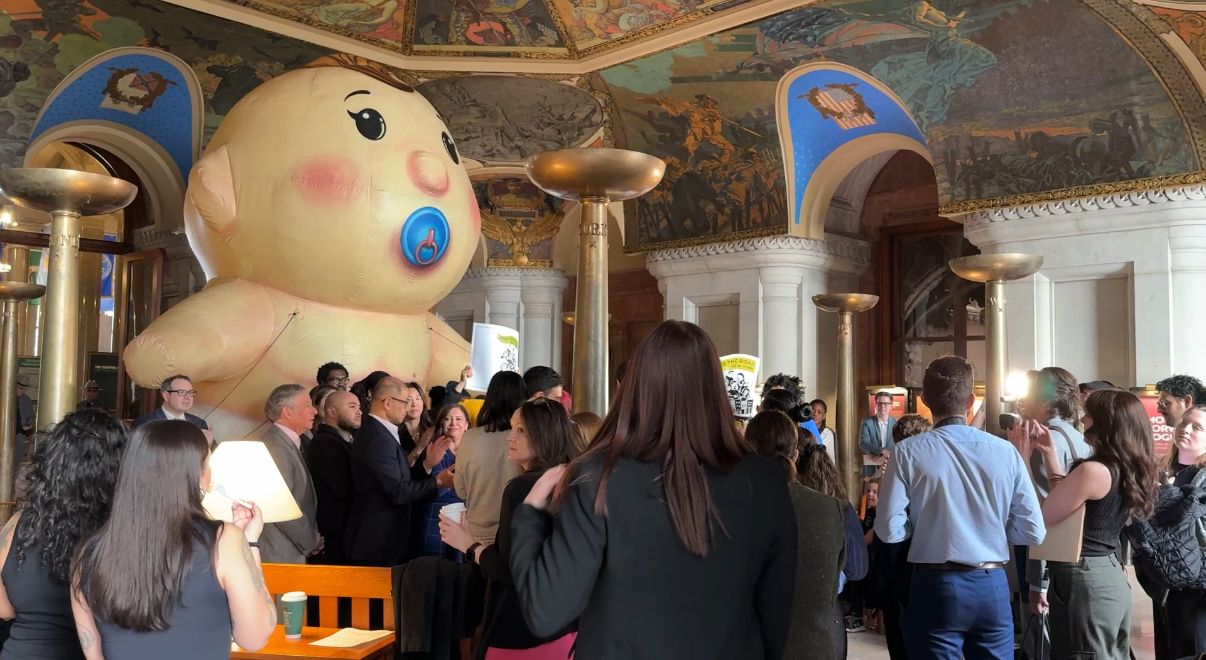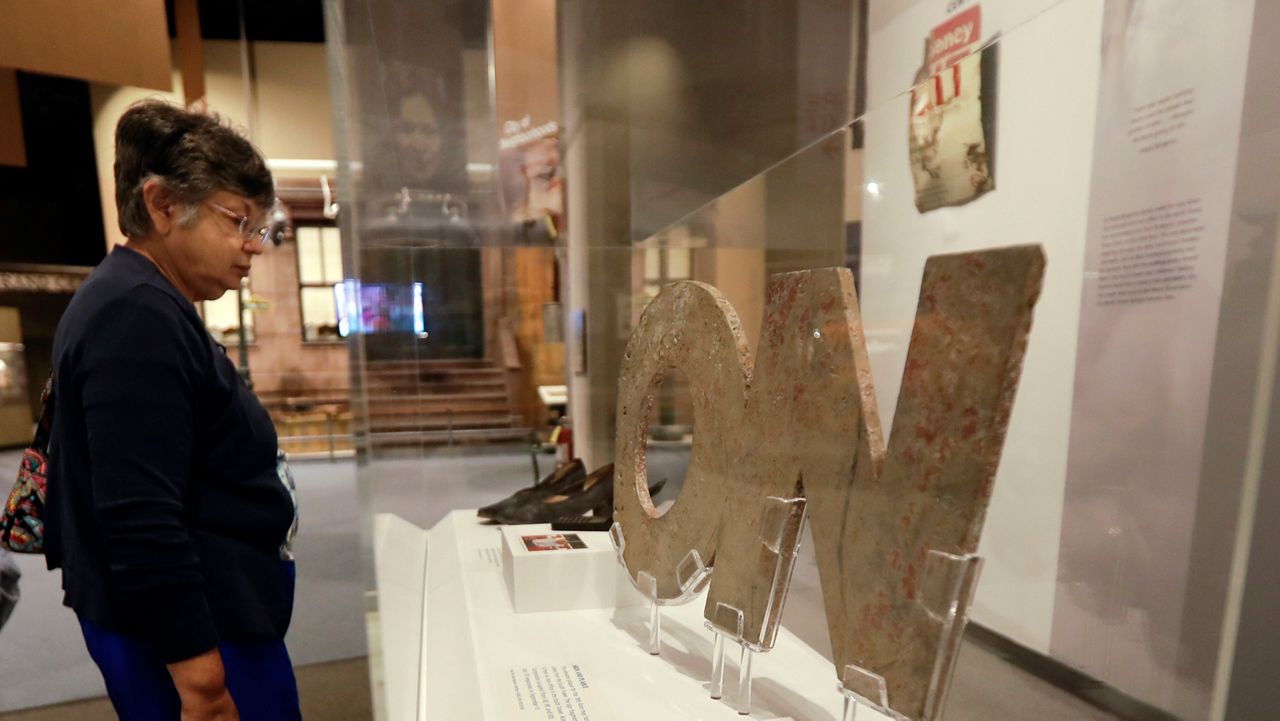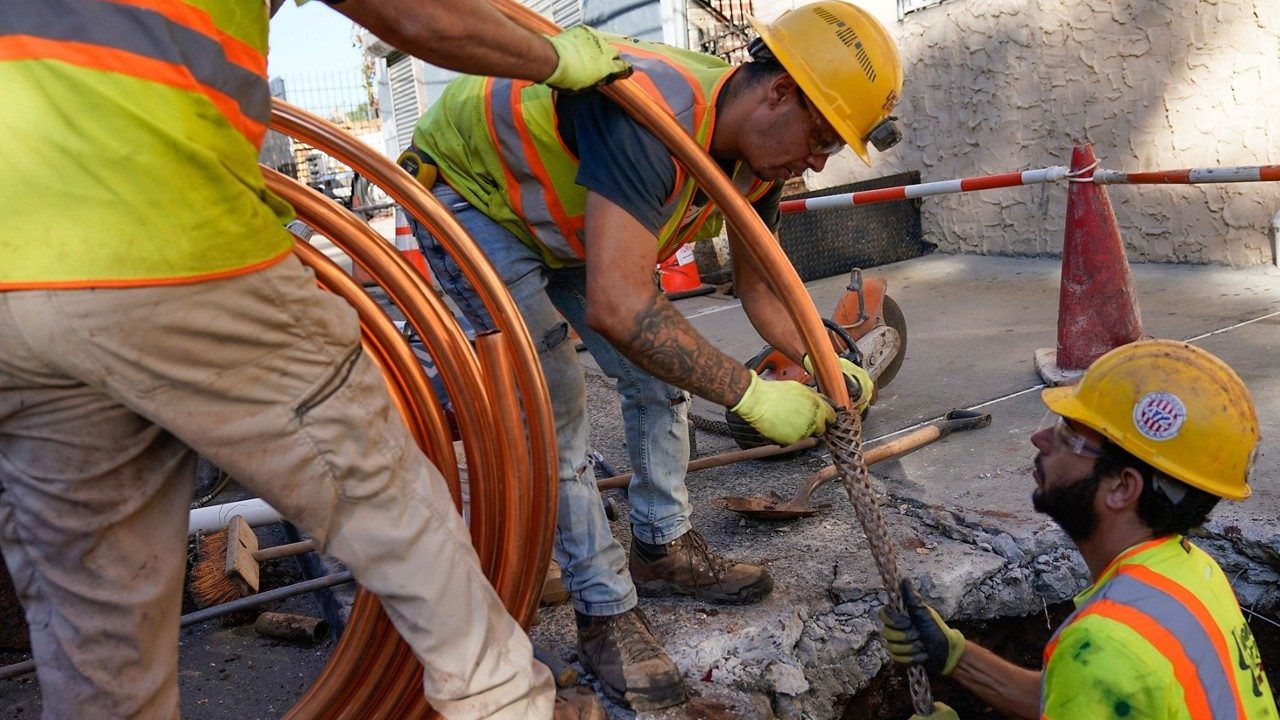As Gov. Kathy Hochul works her way through the pile of bills that were passed this session, she’ll be deciding whether or not to sign three pieces of legislation that hope to chip away at issues with child care in New York.
Experts agree that New York's child care system is in need of an overhaul from the ground up, but that is a tough thing to do in government. Lawmakers and advocates are calling on the governor to sign those bills, which they hope will create a path to make targeted progress.
“We’ve got a lot of rules in these systems that end up excluding families that really need the help,” said Pete Nabozny, policy director for the Children’s Agenda.
He explained that each piece of legislation aims to cut through that red tape.
“It would really help a lot of families across the state and remove some of the bureaucratic hurdles that families experience,” he said.
Assemblymember Sarah Clark carried two of those bills. One aims to make it so that parents who are in the process of starting a new job can access child care assistance before their paperwork has gone through the lengthy approval process.
“We can say ‘If you just do this quick check list, and we can say you’re presumed eligible while you go through this,’ it at least takes some of the burden off finding somewhere for your child every day, and figuring out how you’re going to pay for it,” she said.
Important, Nabozny emphasized, for a parent who is new to a job and has little flexibility.
“If it's your sixth day on the job, or your second week on the job, and your child care arrangements which you’re trying to piece together day to day right now fall through, that employer is going to start to look at you more skeptically,” he said.
The other, Clark explained, would make it so parents who are making less than minimum wage, a group that includes some small business owners and people in the gig economy, are able to access assistance.
Believe it or not, some are denied help because their earnings don’t meet minimum eligibility requirements.
“Now we’re talking about some of the families on the lowest end of the spectrum who have no other way to pay for child care and we’re telling them they make too little,” she said.
The third bill would decouple child care assistance from a parent’s hours of work, making it easier for parents who work unusual or fluctuating hours to receive help with child care.
Nabozny says plugging these holes for families will not only help them, but help New York state’s economy.
“If these three things were signed it would not solve every problem in the world, but it would certainly help a number of families in New York state, and do something for the workforce and help more people access jobs that we know are out there,”
These smaller steps are working incrementally toward the end goal of a universal child care system. While Hochul doesn't typically say what she plans to do with pending legislation, lawmakers say if these bills are signed, attention needs to turn to workforce and wage issues.












